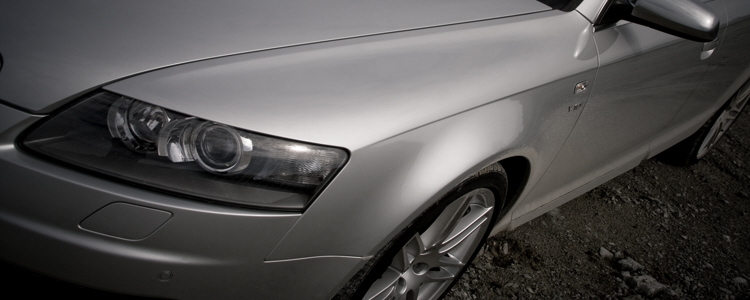Paying cash for a car may get you something quick, but a quick fix doesn't always last. As a bad credit borrower, it may seem more possible to buy a car outright than to finance one, but it may not be the right fit for every situation.
Buying a Vehicle With Cash
If you can afford to buy a car for cash, that's wonderful! But, how much car are you buying? Your vehicle selection is limited to what cash you have on hand if you take that route. If you only have a few thousand dollars, getting a reliable vehicle for that price could be tough. This may not be a bad option, just remember that you get what you pay for. Financing may be able to get you a more expansive and more reliable car.
If you're buying a vehicle with the cash you have on hand there are some benefits, such as:
- No monthly loan payments
- No interest added to the price of the car
- No need to qualify for an auto loan
- May keep you within a budget, without taking on extra debt

- The entire value of the vehicle is equity
- No impact on your credit reports or score
- No additional lender requirements to meet, such as having full coverage insurance
However, keep in mind that there could be disadvantages, as well:
- Paying cash for a vehicle could deplete your savings, making it difficult to cover unexpected expenses that arise with the car.
- You may have a more limited selection of vehicles to choose from
- Paying cash for a car doesn't help you build credit
If you think your credit score is too low to get an auto loan, you could be right, after all, you know your credit situation better than anyone (right?)!
ACE TIP: If you're not so sure that you do know your credit situation, or you don't understand it, you may be holding yourself at a disadvantage by thinking in cash-only terms.
Financing a Car Builds Credit
Financing a vehicle is a great way to improve your credit or start your credit history. If you never take on any new credit, then your credit file is likely to be viewed as “thin” and you may struggle to meet credit score requirements if you end up needing to borrow in the future. The more debt you've taken on and handled well, the better your credit score is likely to be.
Auto loans satisfy many of the requirements of credit building when it comes to your credit reports, which are made up of five sections that combine to determine your credit score. Taking on an auto loan adds to the information in each section of your reports.
To find out what's on your credit reports, and where your credit score stands, you have to check your credit. But, fear not – checking your credit yourself doesn't impact your credit score the way a hard pull from a lender can.
One of the simplest ways to accomplish this is to visit www.AnnualCreditReport.com. This site allows you free access to all your credit reports from the three national credit bureaus: TransUnion, Experian, and Equifax. You can now access this service to check your reports for free once a week until April 2022.
Subprime Lenders Finance Bad Credit Borrowers
Not all lenders finance vehicles for all borrowers, so it's important to minimize loan turn down by shopping with the right kind of lenders for your credit situation.
If you're in a challenging credit scenario right now, it may not count you out of the running for an auto loan. Subprime lenders that work through special financing dealerships can help borrowers with no credit, bad, credit, and even bankruptcy or repossession in some cases. They can work with low credit consumers because they don't look at your credit score alone to make a decision.
In addition to your credit score, these lenders also look at the reasons why your credit score is the way it is. If you're in a tough situation right now but had previously maintained a good credit history, you may have an even better chance at getting financing. This is called situational bad credit, and subprime lenders understand that sometimes, all you need is a chance.
The typical requirements for most bad credit auto loans include:
- Providing proof of income with your most recent computer-generated check stub, showing year-to-date income. Most subprime lenders require a minimum gross income amount of around $1,500 to $2,500 a month.
- Providing proof of employment or proof that your income will continue throughout the term of the loan. This typically can be met with your check stubs, or award letters for non-employment income. Lender employment requirements vary.
- Providing proof of residency with a utility bill and/or bank statements in your name.
- Providing proof of a working phone, either landline or contract cell phone service in your name.
- Providing a list of five to eight personal references, complete with email, home addresses, and phone numbers.
One last requirement that most subprime lenders have is a down payment. This is actually a wonderful opportunity to turn that cash you were going to buy a car with into the first step toward financing a reliable vehicle.
Use Your Cash as a Down Payment
Most lenders require bad credit borrowers to provide a down payment of at least $1,000 or 10% of the vehicle's selling price, sometimes whichever is less. In most cases, the more you can make as a down payment, the better off you're likely to be when it comes to getting the loan.
Down payments have many benefits for a borrower who's financing a car:
- Lowers the amount you need to finance
- Reduces the amount of interest charges you pay over the life of the loan
- The more you put down, the bigger the selection of vehicles you may have
- A larger down payment can reduce the interest rate you qualify for
- You may qualify for more favorable loan terms with a larger down payment
- Can reduce the chance of negative equity
If you're planning to purchase a vehicle for $3,500 because that's all you can scrounge together, and your car's on its last leg, consider using that money as a down payment. Putting this much down on a loan can open a lot of doors for you financially.
If you only plan on spending $3,500 on a car, you're likely to have a limited selection of vehicles. This is both because of the rising prices of cars, and because vehicles in this price range may not be roadworthy for much longer.
Now Consider This: If you finance a $10,000 vehicle using $3,500 as a down payment you're only borrowing $6,500. Even if you choose to finance for around five years, and only qualify for a higher interest rate (the average interest rate for borrowers among our dealership network is 13.6%), you're only looking at payments of around $149.90 a month.
Getting Started With a Bad Credit Car Loan
Depending on the vehicle and your situation, a $10,000 car is likely to be a better investment than a $3,500 one. The point is to balance affordability and reliability and to come out ahead of the game when you're a credit-challenged consumer.
Relying on only cash to get what you can afford now may sound like a wise move, but you may have to repeat the process every few years if you can't afford a vehicle that lasts. And, you can't work on building or repairing credit if you don't have the proof you can handle debt on your credit reports.
Subprime auto loans through special finance dealerships are reported to the major credit bureaus and can help you get on a solid footing when it comes to improving your credit score. Convinced that financing may be the better route, but not sure where to start? We've got you covered.
At Auto Credit Express, you can get on your way toward your next auto loan by filling out our fast, free, no-obligation car loan request form. We'll get right to work, connecting you with a local dealership that's signed up with subprime lenders who are standing by to help.
















